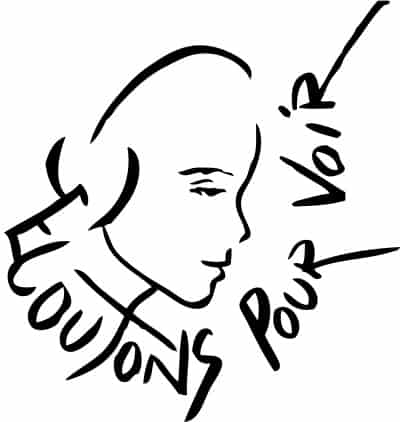THE SACEM?
You can use the SoundCloud for your own personal use, although if you use music in a public space, it may be considered a public performance and you may need additional licenses for that use. You can use the SoundCloud for your own personal use, although if you use music in a public space, it may be considered a public performance and you may need additional licenses for that use. SACEM is often considered a tax.
Why is that a misperception?
- Because SACEM is a private company, and taxes can only be levied by the State. How is it that a private company can levy what many people consider a tax? The reason is simple: it is not a tax, but a flat-rate bill that corresponds to the price of use.
 What are the sums I pay to SACEM?
What are the sums I pay to SACEM?
When you drink water, you pay a certain amount to the company that provides you with water, whether it is tap water or bottled water. When you use electricity, you pay a certain amount to the company that provided you with electricity. If you don't want to pay for electricity, fine, don't use it and you won't have to pay anything. It's the same with music: from the moment you listen to music, that is, you use a service, you have to pay for that service, either directly or through advertising. This payment is made to SACEM.
Indeed, SACEM represents artists (authors, composers) and publishers. It also acts as a collecting body for the SPRE, or Société pour la Perception de la Rémunération Equitable, which represents performers and producers, and distributes the sums to them according to what has been broadcast. The sums you pay therefore enable SACEM to pay both authors and singers, as well as producers and publishers, for the work they have done. That is why we say that SACEM is a redistribution society: it allocates between the artists the money she collected.
For the record, the SACEM was created in 1850 by Ernest Bourget, who wrote the booklets for the composer Jacques Offenbach and who was fed up with music being played free of charge in Parisian bars and cafés, without any benefit to the artists, especially the composers.
"The work these artists have done"? What do you mean?
It's obvious, creating and producing music takes work, effort. When the resulting music is used, it's normal to pay for that use. Artists don't work for free. <
Curiously, most people who complain about the SACEM price would not agree to work for free, but they think it is normal for artists, producers and record companies to work for free. They think it is normal to consume music without paying anyone anything. It is quite strange.
If you listen to music in your own home or car, for example, you unknowingly pay a fair fee. For example, if you listen to an FM radio station, it makes money from the commercials it broadcasts and you hear. Part of the revenue from these commercials is used by the FM radio station to pay SACEM. If you use Spotify, the company that owns Spotify pays a certain amount to SACEM per song, either from the commercial or from the subscription price. If you buy a track on Amazon or another platform, the price of the song also includes the amount due to SACEM.
The sums received by the artists are actually not very high. According to an article in the Belgian daily newspaper The EveningA few years ago, a rock band was earning 0.0041$ per song listened to. If we imagine that an artist should be able to earn a minimum wage of 1500 euros gross (for example), a group of 4 musicians will have to earn 6000 euros. To achieve this, their songs will have to be listened to at least 1.5 million times a month. Which is rare. So many artists, authors, composers or performers have agreements with the record company that will give them a certain amount to live on. Of course, some artists earn a lot of money: when a song is played millions of times a week, the artist is very happy and some are millionaires. But they are rare. Most artists, composers, performers etc. earn very little money. If music was a job that allowed them to become rich, it would be known.
 Why do you have the right to use Youtube Premium, Apple Music or Spotify as a private person, but not as a shopkeeper, hotelier, bar or guesthouse manager etc…
Why do you have the right to use Youtube Premium, Apple Music or Spotify as a private person, but not as a shopkeeper, hotelier, bar or guesthouse manager etc…
Because in the context of your personal subscription to these platforms you already pay rights which are paid back to the artists. The sums you pay are very low, because generally in a family there are only 2.3 people on average. But in a shop or in a café or in a hotel there are many more, at least that's what you want the owner to have. The idea is that authors, composers, production houses etc. should be paid according to the number of listeners.
If we use the analogy of water, if you are on your own and you drink a 1 litre bottle of water you will pay, say for example 1 euro. If you invite 10 people and each person drinks 1 litre, that is 10 litres, so of course you will pay 10 euros.
It's the same in the case of music: if 100 people hear a musical title, it's as if that title had been broadcast 100 times. Since SACEM pays the rights holders according to the number of broadcasts, it has to charge more to pay everyone. That's why broadcasting in a public place costs more than in a family.
Of course, it is never possible to know exactly how many people hear the song. So SACEM makes lump sums, based on average calculations. We can say that in a 40-seat restaurant that is full to 60% on average, that is roughly 24 people per day. So that gives a basis for calculation.
It should also be remembered that, in a commercial context, music contributes to your turnover, albeit in very small proportions, but it is still a contribution. Just as electricity contributes to your turnover, probably in a higher proportion, however. You pay for the electricity you use, you pay for the music you use. Logical.
Please note that when you buy a smartphone, USB key, hard drive, computer for personal use etc., you pay (perhaps unknowingly) a private copy right, which is paid back to the artists and publishers. Equipment used in a professional context is not subject to this levy.
As a merchant, can I refuse to pay these royalties?
No, it's illegal. Using other people's work for free without their consent is theft at best, slavery at worst.
In France, copyright is enshrined in law in the form of Law No. 57-298 of March 11, 1957 on literary and artistic property. Not paying copyright is therefore equivalent to theft from the point of view of the law and is therefore an offence. Article L122-4 of the Intellectual Property Code: " Any representation or reproduction in whole or in part without the consent of the author or his successors in title or assigns is unlawful. « .
Technically, broadcasting music without paying the rights is counterfeiting. In theory, counterfeiting is a maximum of 3 years in prison and a fine of 300,000 euros. In practice, a trader who broadcasts music without paying the SACEM will not go to prison, but he may have to pay quite large sums if he is caught in the act. There is usually negotiation, but if he refuses to negotiate, he may well go to court, which is never a good idea.
As a private person, you have no choice: whether it's Spotify, Apple Music or FM radio or a commercially purchased CD, the remuneration of the authors is already paid by the company that broadcasts the music. It's true that in the case of services that broadcast advertising, you don't realize it – the price you pay is to hear advertising.
 However, there is such a thing as royalty-free music?
However, there is such a thing as royalty-free music?
Absolutely. In the normal SACEM model, authors and composers are paid when their music is broadcast, so if the artist's music is not broadcast, they do not receive any money.
To avoid this, artists who fear they will not be successful may decide to sell their music to companies, giving up their rights in the process, and then buy the right to use the piece of music in question directly from the company, which then sells this music free of rights to those who want to use it.
Of course this music is not free. To listen to it, you have to buy it. You also pay to have the right to use it, but you pay less than at the SACEM, and you don't pay the SACEM but the company that broadcasts this music.
There may also be free alternatives: the SoundCloud site, for example, automatically applies a "copyright" system to songs uploaded by artists to protect their rights, without remunerating them. SoundCloud even offers artists who wish to do so the option of opting for a "Creative Common" license that allows everyone to reuse their music or even modify it, etc.
But for professional artists, who have uploaded more than 3 hours of music, SoundCloud offers a service called "Premier", which allows artists to monetize their music, and thus earn money. What's more, SoundCloud's legal team warns listeners that they have no right to use the platform for commercial distribution: " You can use the SoundCloud for personal use, but if you use music in a public space, it could be considered a public performance and you may need additional licenses for that use.« .
Indeed, to use royalty-free music in a commercial space or for public broadcasting, this use must have been expressly validated for that purpose.
Why are royalty-free shares cheaper than SACEM shares?
Because the royalty-free music broadcast is not known, or not yet known, or not of the same quality. Artists who go through these distribution channels feel they have little chance of seeing their music broadcast in the top 40 or on the radio, and prefer to sell their music directly to publishers. At Ecoutons Pour Voir, we regularly receive proposals from artists who suggest that we buy 40 or 50 songs that they have composed. We obviously do not follow up, because we cannot manage the hundreds of artists that would be needed to have a sufficient music catalogue.
Why artists don't trust their music production is a difficult question, but the fact remains that they only sell their songs for a few euros to royalty-free publishing houses.
It is certain that to earn money with SACEM as an artist you have to have your music played a lot. Many artists registered with SACEM earn only a handful of euros a month. Some earn much more, as soon as they have written a hit song. This can amount to millions of euros in rights when the song is extremely popular.
Only a few thousand artists earn enough to live on with SACEM: these are the ones whose songs are often broadcast. It is possible that an artist who decides to make a living from his music but knows that he does not have what it takes to succeed through the traditional circuit, may decide to go through royalty-free music to build up an income.
Royalty-free platforms such as SoundCloud allow certain artists to make themselves known. Initially, Post Malone's music was on SoundCloud, available for free. As soon as he became successful and signed with the Republic Records label, he began to receive remuneration. The rapper, born in 1994, is worth almost 14 million dollars in 2020: it is not royalty-free music that has brought him such success.
 Isn't it in my interest to play royalty-free music if it saves me hundreds or thousands of euros in SACEM fees every year?
Isn't it in my interest to play royalty-free music if it saves me hundreds or thousands of euros in SACEM fees every year?
Generally, royalty-free music is perceived to be of lower quality by customers in stores, often because it is simply instrumental, with no known singer or voice, and sometimes because it is simply mediocre.
Brands that have tried it often regret it.
Our advice: if you don't want to pay the SACEM, it's better not to play music, silence is better than unsuitable music.
Warning: if you decide to broadcast royalty-free music, you must not broadcast anything else. No Spotify, no web radio, no CDs, no TV on… If you choose not to pay SACEM, you will have to decline their contract proposal officially. If you do broadcast music from the SACEM catalogue, you are in the domain of counterfeiters, and in this case there is no negotiation because bad faith is proven… Avoid it!
Why do I have to pay SACEM if I use a TV to broadcast music, when I already pay the licence fee?
The audiovisual licence fee has nothing to do with the SACEM. It is a contribution to public broadcasting, therefore a public service. The SACEM is private. What the State does with the contribution to public broadcasting depends on the State budget and the Ministry of Culture, but one thing is certain: authors, composers and performers don't get a penny of it. Some people say that they never put music on their TV: the problem is that it is impossible to check, especially since all channels play music at one time or another. So if you have a TV in a commercial place and you don't pay the SACEM, you use music without paying the authors and composers, and that's really not good. You wouldn't like to work without being paid, would you?
The question was put to theNational Assembly by a member of the Finistère parliament in May 2019: Mrs Le Faure wondered why gîtes and guest rooms that have a television in the rooms offered to guests have to pay a SACEM package. She took the example of a gîte accommodating no more than twenty people a year having to pay a special annual tourist accommodation package of 193 euros, i.e. 16 euros a month. The Finistère representative's reasoning was that " heavily penalises the operators of such accommodation, even though their establishments, although modest, play a significant role, particularly in rural areas, where they help to maintain an activity. »
A bed and breakfast is a commercial activity, whether they make little money or not. They have to pay for the services they use. Do they pay for their water? Do they pay for their electricity? Yes. Do they have to pay for the music they play? Yes. The answer given to the member is clear: "Yes, they do. While the Ministry of Culture has a power of control over collective management bodies, such as SACEM, it is not up to the Ministry of Culture to decide on the appropriateness of their rights management policy, which in no way constitute a tax or royalty of a fiscal nature. The copyright royalty payable by hotel establishments is based on Article L. 122-2 of the Intellectual Property Code, which requires the author's authorisation for the representation of his work. The equitable remuneration royalty paid to performers and producers of phonograms is provided for in Article L. 214-1 of the Intellectual Property Code, in return for the communication to the public of commercial phonograms, to which the right holders cannot object. The Court of Cassation has specified that a hotelkeeper who provides his guests with a device enabling the reception of television programmes, is performing an act of communication to the public implementing copyright (Cass. Civ. 1, 14 January 2010, Cass. Civ. 1Ère, 6 April 1994). Individual operators of guest rooms or gîtes who make musical broadcasts in the rooms, common areas, etc., are liable to pay a royalty.
So if the owner of a restaurant, gîte, shop or hotel does not want to pay SACEM, all he has to do is not provide his customers with a TV or play music. If he does not want to pay a water bill, he does not provide a tap. It is, however, simple to understand, and we are surprised that the Member of Parliament asked such a question. Moreover, this is not unique to France: it is the same in other countries.
What if I decide to play classical music?
You can choose to play classical music all the time. Beethoven, Bach etc… are all long dead and their music is in the public domain, which means that there is nothing left to pay.
Be careful however: recordings of classical music by a performer may be subject to copyright, because there has been a performance. A symphony performed by Herbert Von Karajan or Daniel Barenboim is subject to copyright because the conductor has transformed the original score in his own way, through the performance.
In any case, very few businesses broadcast classical music all the time, which usually ends up driving away customers, except in very special cases.
I still don't see why I should owe anything to songwriters and performers and record companies etc…
A common idea is that when you're an artist, you've chosen to starve to death. It's true, after all, instead of composing music or writing songs, all these artists would do better to do real work, like accountant, banker, taxi driver, and so on.
If you think that then you are one of the people who should not be allowed to listen to music. Artistic professions are far from easy, they require a lot of effort, passion and are often very poorly paid when everyone is happy to listen to music. For a globally successful artist like Johnny Hallyday, Post Malone or Eminem, there are tens of thousands of artists who are struggling to make ends meet. For everyone who uses an artistic production to pay the artists is not only logical and normal, it is also ethical and it is appropriate.
What if I use Creative Commons music made by a foreign artist who doesn't receive money from SACEM or the societies representing performers (Adami, Spedidam…)?
Theoretically, if you only play music conceived and made abroad by songwriters and composers who give you the right to play their music for money, why should you have to pay anything to French companies who will never pay a cent to these songwriters and composers because they are not located in France, or even in Europe?
In fact, the law must be applied, not just the law but the whole law, and the law says that all music broadcast gives rise to the collection of remuneration. For that to change, article L-214-1 would have to be changed. That is possible, but it is not a foregone conclusion. Talk to your MP and wait a few years, not to mention the implications at the European level.
Secondly, how can you guarantee that you will only play royalty-free music? Given the very nature of music, it's very easy to say "I only play royalty-free music" and actually play music that is not royalty-free. To avoid such inevitable fraud, you would have to put in place a lot of controls, so the collecting societies would have to hire a lot of controllers, so the SACEM, SPRE, etc. tariffs would go up for everyone because some people don't want to pay the artists. Then there would be a lot of lawsuits that would clog up the courts a little bit more, and then what would happen, prison sentences? It's quite complicated. Of course, there are people who will do anything to avoid paying royalties, taxes, or anything else. To those people, we propose a very simple solution: don't play any music in your establishment.
 In the professional Music Admix radio solution that you are proposing, are the SACEM rights included?
In the professional Music Admix radio solution that you are proposing, are the SACEM rights included?
We are often asked this question, but the answer is no because, as explained above, the SACEM lump sum depends on the number of people who are likely to hear the music being played. We are not able to adapt our prices according to the size and location of the shop or restaurant. It is as if a restaurant had to change the price of a steak depending on whether the customer is a big eater or a small eater! Of course, this is impossible, so the SACEM has to be paid directly by the establishment.
In addition, retail radio solutions, or radios for shops, are sold for a few dozen euros per month. There are some variations depending on the service (with or without a message, with or without updates, with several radios or just one, streaming or not, with access to modify the radio yourself, etc.) but roughly speaking the prices are the same. A few dozen euros per month, a few hundred per year.
However, the fees collected by SACEM are more or less always higher, except for very small businesses with very few vendors, or for gites etc.
To sum up:
- The SACEM is not a tax, it is the salary of authors, composers etc..
- If you love music, you want artists to make a living from their work as you make a living from yours,
- You also think it's normal that people get paid when their work is used,
- So you are happy and pleased to pay SACEM because it corresponds to your values and ethics.
- But above all you are happy because a good in-store radio is good for your turnover.
